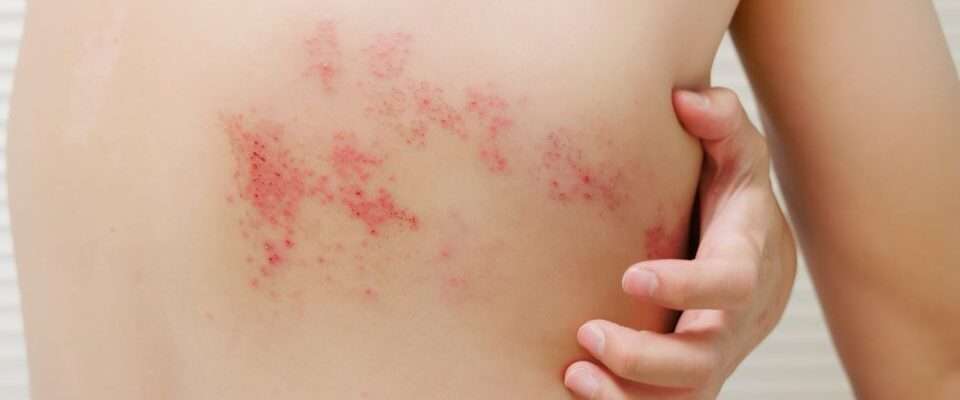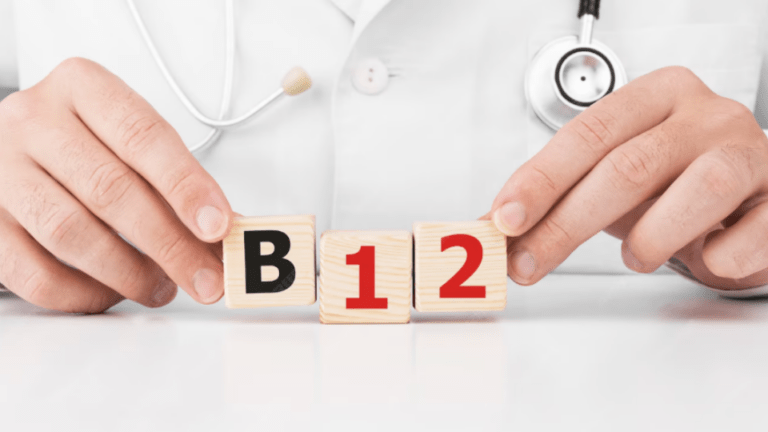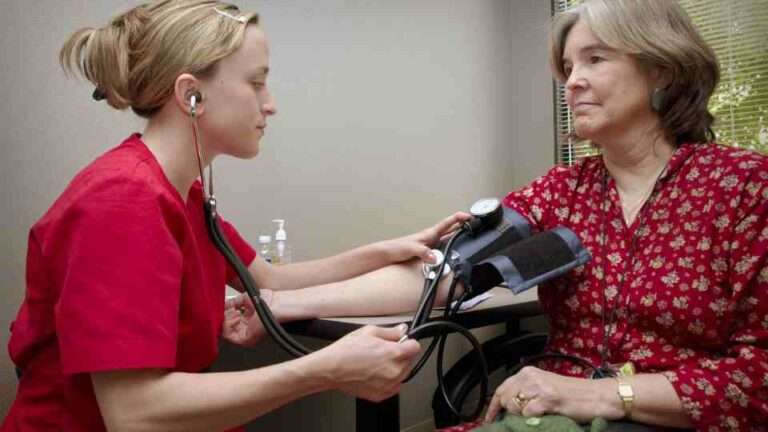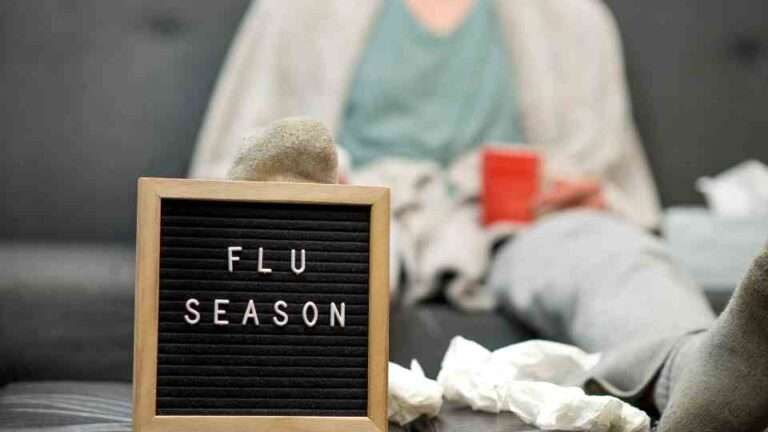It’s easy to dismiss a rash or tingling sensation as something minor — but if you’ve had chickenpox before, it could be shingles. This viral infection can cause intense pain, itching, and blistering, often appearing on just one side of the body. While shingles can affect anyone who’s had chickenpox, it’s especially common in older adults. Thankfully, the shingles vaccine can help reduce the risk of developing it in the first place. In this guide, we’ll explain who’s eligible for the vaccine, what to expect, and how Southdowns Pharmacy can support you through NHS guidance or fast treatment via the Pharmacy First service.
What Is Shingles and Who Gets It?
Shingles is caused by the varicella-zoster virus — the same virus responsible for chickenpox. After you recover from chickenpox, the virus doesn’t fully leave your body. Instead, it lies dormant in your nervous system and can reactivate years later, leading to shingles.
Shingles symptoms typically include:
- Pain, burning or tingling – Usually on one side of the body, often before a rash appears.
- A red rash with fluid-filled blisters – These eventually scab over and heal.
- Itching or sensitivity – Particularly in the affected area.
- Fatigue or mild fever – Not always present, but possible.
Anyone who’s had chickenpox can develop shingles, though it’s more likely to appear in:
- Adults over 50
- People with weakened immune systems (e.g. due to illness or medication)
- Those under stress or recovering from another illness

Why It’s Important to Take Shingles Seriously
While shingles is rarely life-threatening, it can be extremely uncomfortable and lead to complications if not treated early. The pain from shingles often lasts longer than the rash itself, and in some cases, it can develop into a condition called post-herpetic neuralgia (PHN) — a type of nerve pain that can linger for months or even years.
Potential complications of untreated or severe shingles include:
- Ongoing nerve pain (post-herpetic neuralgia)
- Skin infections from open or scratched blisters
- Vision problems – If shingles affects the area around the eyes
- Scarring or long-term sensitivity in the affected area
This is why early treatment and prevention through vaccination are so important — especially if you’re in a higher risk group.
Shingles Vaccine Eligibility: Who Qualifies?
If you're wondering whether you can have the shingles vaccine, you're not alone. Many people are unsure whether they qualify — especially with recent changes to the NHS vaccination programme. That’s why understanding shingles vaccine eligibility is so important.
You may be eligible for the free NHS shingles vaccine if:
- You turn 65 on or after 1st September 2023
- You are aged between 70 and 79 and haven’t yet received the vaccine
- You are aged 50 or over and have a severely weakened immune system (eligibility for this group is assessed on a case-by-case basis by healthcare professionals)
The shingles vaccine helps reduce your risk of developing shingles and also lowers the chances of experiencing long-term nerve pain if you do get it. It’s offered routinely in certain age groups because that’s when the risk of complications becomes much higher.
Which vaccine you get depends on your age and health:
Zostavax: A live vaccine, usually offered to those with healthy immune systems
Shingrix: A non-live vaccine, typically given to those with weakened immune systems (offered in two doses)
If you're not eligible for the NHS vaccine but still want protection, you may be able to get the vaccine privately — ask your pharmacist for more information.
What to Expect From the Shingles Vaccine
The shingles vaccine works by boosting your body’s natural immunity to the varicella-zoster virus, helping prevent the virus from reactivating later in life.
Here’s what to expect from your appointment:
- A quick consultation to check your eligibility and medical history
- The vaccine is usually given as a single injection in the upper arm (or two, if you’re receiving Shingrix)
Most people have no side effects, though you may experience:
- Mild pain, redness or swelling at the injection site
- Headache or tiredness
- A low-grade fever (less common)
These side effects usually pass within a day or two. It’s important to note that the vaccine doesn’t treat shingles — it’s designed to prevent it or reduce its severity if it does occur.

Managing Shingles and Booking Your Appointment
If you’re experiencing symptoms of shingles or want to protect yourself with the vaccine, Southdowns Pharmacy is here to help. Through the NHS Pharmacy First scheme, eligible adults aged 18 and over can access same-day support without needing to see a GP. Our expert pharmacists can assess your symptoms, recommend over-the-counter treatments, advise on antiviral options where appropriate, and offer practical tips for easing discomfort at home.
For prevention, we’ll help you check your shingles vaccine eligibility and guide you through NHS or private options. Don’t wait — book a Pharmacy First consultation, get in touch, or visit your local branch today for fast, trusted care.

This blog was written on behalf of Southdowns Pharmacy by Pharmacy Mentor.











































